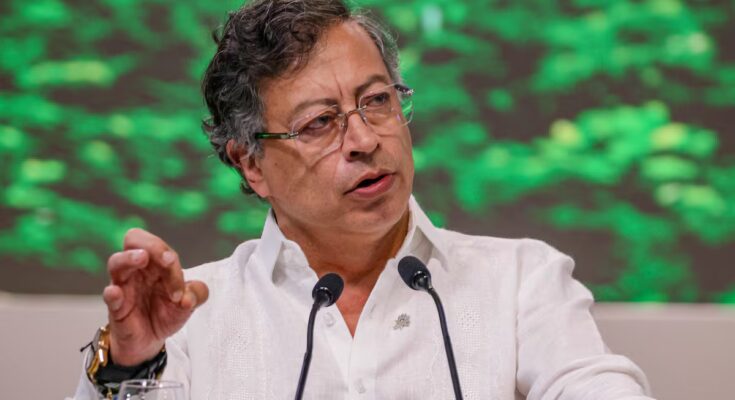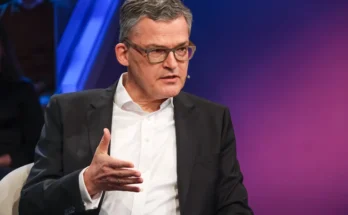Colombian President Gustavo Petro ordered the Colombian secret service on Tuesday night to stop sending information to US agencies, ending a decades-long binational collaboration through a publication in X. “This measure will be maintained as long as the missile attack against vessels in the Caribbean continues,” he explained. The news has not yet received a response from President Donald Trump or his Secretary of State, Marco Rubio, but the reduction in intelligence cooperation is not something uniquely Colombian. In recent days, both the United Kingdom and the Netherlands, which does not have such a tense relationship with the White House and has territories in the Caribbean, have also limited the intelligence they send to Washington. According to CNN, the British fear that information gathered on their islands will be used for indiscriminate bombing by the United States. The only ones who gain from the end of this collaboration, experts say, are those who would be persecuted: the drug traffickers.
Elizabeth Dickinson, a researcher at the International Crisis Group, believes that if Petro does not change his mind, “it would be a very strong blow against the United States, because Washington depends a lot on Colombia in the war on drugs.” He cites, for example, a figure revealed by Congressman Gregory Meeks at the US Congressional Committee on International Relations, according to which 85% of the intelligence information coming from the Key West Naval and Air Base, between January 2024 and June 2025, came from Colombia. Such information, Dickinson explains, usually involves seizures of illegal drugs heading north. It is in this military headquarters in South Florida that cooperation between the United States and Latin America in the fight against drug trafficking is coordinated.
“It would be a mutual blow, because for several weeks now the United States has not shared military intelligence, not only with Colombia, but also with other NATO allies in Europe,” explains Dickinson. Although Washington is developing a large military deployment in the Caribbean Sea, these allies have received no intelligence on Trump’s plans in the region. If they planned to attack Venezuela, for example, should the allies evacuate their diplomatic or consular personnel from Caracas? Washington does not respond. “I think countries that are cutting their intelligence aid are reminding the United States that this has to be reciprocal,” the analyst adds.
Retired Vice Admiral Paulo Guevara also believes the two countries are losing valuable information. “The biggest beneficiaries are drug traffickers,” he says. “Drug trafficking affects many countries, it is complex, variable and involves millions of dollars. Therefore, the best tool to fight drug trafficking has been international cooperation. For example: Colombia transmits information about a ship bound for the United States, Washington warns Mexico and they intercept it on the Mexican coast,” he explains.
On the other hand, the official adds, it was essential that Colombia had information from the United States to understand the drug trafficking networks in its territory. “When a drug trafficker caught there cooperates with the justice system, they interrogate him. This information is very useful to us here,” he says. The official regrets that since 2024 the Egmont group, a system that allows sharing information from other countries on money laundering or how transnational crime moves their assets, has suspended Colombia, after Petro revealed confidential information about the purchase of Pegasus software in the previous administration.
“The United States loses a 40-year-old ally who produces a lot of intelligence, but the consequences for Colombia are truly disastrous, because we will be left without resources to fight drug trafficking. Much of our intelligence is financed with American aid”, adds the vice admiral.
An official who has worked closely with the Colombian intelligence service, but who cannot reveal his name, points out that Colombia’s weakest point has to do with the cutting-edge technology that the South American country has acquired in recent years and which it could not maintain without US support. “North American intelligence agencies have always been leaders in cutting-edge technologies, such as satellites or communications interception, much more than in human intelligence,” he argues.
“With Colombia, cooperation began to develop in the 1990s, and much of the military and intelligence apparatus would not have been able, as an intermediate country that we are, to access all the information that is collected if it were not for that technology. We did not have the budgetary capacity nor the technical capacity to develop that technology locally,” he assures. With it it was not only possible to follow the movement of small planes or boats with drugs, but also to report any seizures of power by former FARC guerrillas. “But these technologies quickly become obsolete, so it is necessary to constantly modernize them, and this is only possible if good synchronization with the United States is maintained,” adds the expert.
That synchronicity, with Trump and Petro, is a utopia. The former described the latter as a drug trafficker and decertified Colombia’s work in the war on drugs. The Colombian responded with decisions such as ending intelligence cooperation. The two governments will eventually lose the information they had accumulated on the powers and routes of drug trafficking. And in this ignorance, only the drug traffickers win.



